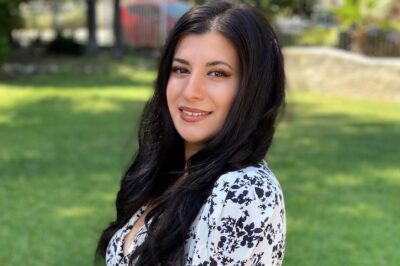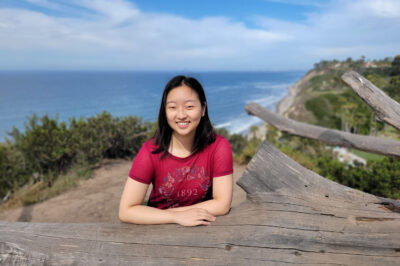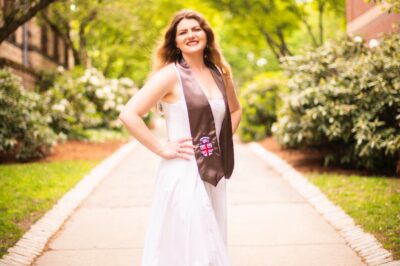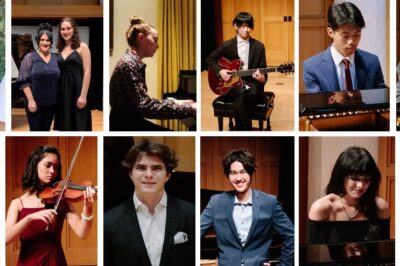Albert Zhou
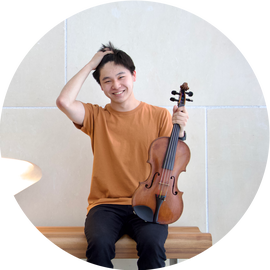
In addition to completing PCM’s Young Musicians program (which he began at the age of one), alumnus Albert Zhou ‘20 studied violin with Aimée Kreston, viola with Andrew Picken, and chamber music with Andrew Cook. Now 21, Albert is a senior at Princeton University, where he is pursuing a B.A. in Molecular Biology and a Certificate in Viola Performance. Read below about Albert’s latest pursuits.
How have you enjoyed your time at Princeton so far?
It’s been great. Challenging, but great. Princeton is very focused on undergraduate education so I feel that I’ve been receiving a very strong liberal arts foundation, and outside of academics, I’ve been able to find time to be involved in a decent amount of musical activities.
What are you studying?
I am majoring in molecular biology and minoring in viola performance. This year, I am working on my senior thesis for the molecular biology degree, which is both exciting and intimidating, and also preparing for my senior recital as part of the music minor.
How have you managed to continue to support your passion for music in college?
Although Princeton does not provide the option to double-major, they have a robust music performance minor which has played a role in how I have kept music in my life. As part of the minor, I have been taking courses in music, which includes theory as well as performance-based coursework, such as a class in which chamber music groups prepare an entire work over the course of the semester. I also play in the Princeton University Orchestra which enjoys an eventful season each year consisting of four concert cycles and a tour every other year. This past March, we toured Bulgaria, Serbia, and Hungary, which was an amazing experience, both musically and intellectually.
Outside of the university-sponsored musical activities, I am very active in the student-run music scene as a member of Opus, the undergraduate-run chamber music collective. Opus is modeled after professional organizations such as Chamber Music Society at Lincoln Center and Camerata Pacifica, so we have a core membership that splits off into different ensembles each semester, culminating in self-produced concerts at the end of the semester. This year, I am serving as Opus’s president, which is particularly exciting as we are in our tenth anniversary season.
Can you share more about your semester abroad at the Royal College of Music in London?
Having the opportunity to spend a semester at the Royal College of Music was one of the reasons I chose to attend Princeton, as it would allow me to experience life as a full-time music student within the framework of a degree in the sciences. The RCM program works as a one-way exchange, so Princeton students spend a term in London as full-time students at the RCM, taking lessons, completing academic coursework in music, performing in the orchestra, and pursuing independent performance projects on the side.
Do you have a musical experience that is particularly memorable for you?
I think that playing in the orchestras at the RCM is probably among the most memorable musical experiences I’ve had. From the very first rehearsals, where the orchestra already sounded pretty incredible, to the final performances a few long days later, being a part of an orchestra of that caliber made me go, “Oh, wow. This is why I love music.” Everything fit so cleanly and precisely together, and it felt like attending a professional orchestra concert, but intensified by being right in the middle of it all.
You started your musical journey when you were very young. How did being surrounded by music from a young age help shape you into the person you are today?
Music has been a constant in my life, persisting through changes, setbacks, and achievements. Because of that, it plays a central role in who I am today. Music grounds me when school work feels overwhelming, provides me with a creative outlet, and is a great way to decompress. Music has also been the means through which I’ve met many of my friends, particularly at Princeton. But more concretely, being immersed in music from a young age has been key in developing a strong work ethic, perseverance, and communication skills, and as someone whose primary studies are in the sciences, music provides a completely different set of skills that are nonetheless valuable and transferrable.
As someone who hopes to enter the medical field, do you see parallels between music-making and medicine?
One of the things that I think makes music, and music education specifically, so valuable is the large set of transferable skills that music-making helps us develop. There may not be direct links between music-making and medicine, but the ability to determinedly work towards a goal, attention to detail, and collaborative skills that music-making demand are attributes that are useful in medicine, among many other careers and paths.
